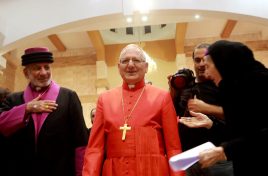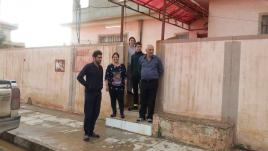
The lockdown “is not an obstacle to the upcoming visit of Pope Francis (5-8 March). In fact I regard it as a measure that will also benefit his own security, since it will allow him to travel and circulate with greater ease.” Chaldean Patriarch Louis Raphael Card. Sako, does not seem to be worried by the latest lockdown restrictions announced yesterday by the Iraqi government, which include the closure of mosques and all places of worship, the suspension of weddings and funerals, the mandatory use of masks in public places and physical distancing of at least 2 metres. The government also imposed a full lockdown on Fridays, Saturdays and Sundays every week from 18 February and a partial lockdown between 8 p.m. and 5 a.m. on Mondays, Tuesdays, Wednesdays and Thursdays until 8 March 2021, namely until the conclusion of the Papal visit (5-8 March).
 The Pope will arrive on Friday, 5th March, and leave on Monday, 8th March. This means that the entire visit will take place under a “full lockdown.” “With regard to risks related to the presence of the faithful at papal events – the Patriarch explained to SIR – those chosen to represent the ecclesial community, and thereby participate in the official events of the programme, have all already been registered. And therefore no problems should arise. We have complied with all anti-COVID-19 requirements imposed by the government.” “It is therefore expected that the impact on the visit will be rather limited,” the Patriarch added. “Pope Francis’ visit to Iraq is eagerly awaited. I have met with the highest authorities over the past few days to discuss the visit – the Iraqi President, the Prime Minister. They look forward to the visit with joy, they know that this event is of great significance for the good of Iraq and its people.”
The Pope will arrive on Friday, 5th March, and leave on Monday, 8th March. This means that the entire visit will take place under a “full lockdown.” “With regard to risks related to the presence of the faithful at papal events – the Patriarch explained to SIR – those chosen to represent the ecclesial community, and thereby participate in the official events of the programme, have all already been registered. And therefore no problems should arise. We have complied with all anti-COVID-19 requirements imposed by the government.” “It is therefore expected that the impact on the visit will be rather limited,” the Patriarch added. “Pope Francis’ visit to Iraq is eagerly awaited. I have met with the highest authorities over the past few days to discuss the visit – the Iraqi President, the Prime Minister. They look forward to the visit with joy, they know that this event is of great significance for the good of Iraq and its people.”
 “I have been receiving beautiful messages also from Muslim authorities”, the Cardinal said, “and a number of Islamic leaders, such as Muqtada al-Sadr, have told me that their hearts are opened wide.” For the Chaldean Patriarch, with a long-standing commitment to interreligious dialogue and peaceful coexistence, these are hope-inspiring “signs of a warm welcome.” In this light, the meeting between Pope Francis and the Grand Ayatollah Sayyid Ali Al-Husayni Al-Sistani in Najaf, “could mark the beginning of a very important journey. As for the signing of a document,” Card. Mar Sako pointed out, “there has been no confirmation or official announcement.” He added with great conviction and awareness:
“I have been receiving beautiful messages also from Muslim authorities”, the Cardinal said, “and a number of Islamic leaders, such as Muqtada al-Sadr, have told me that their hearts are opened wide.” For the Chaldean Patriarch, with a long-standing commitment to interreligious dialogue and peaceful coexistence, these are hope-inspiring “signs of a warm welcome.” In this light, the meeting between Pope Francis and the Grand Ayatollah Sayyid Ali Al-Husayni Al-Sistani in Najaf, “could mark the beginning of a very important journey. As for the signing of a document,” Card. Mar Sako pointed out, “there has been no confirmation or official announcement.” He added with great conviction and awareness:
“it will be a first meeting and we have no knowledge of the topics they will discuss, but there will be time for the visit to unfold. It represents a major step in interreligious dialogue. The guidance of the Ayatollah is regarded highly by the Shiites and by Iraqi society at large. Engaging in dialogue is important for the good of our country and our Christians.
Symbolic events. With regard to the programme of the visit, the Patriarch highlighted “the symbolic value of the inter-religious meeting at the Plain of Ur, the prayer of suffrage for the victims of the war at Hosh al-Bieaa (Church Square) in Mosul, and the Angelus prayer in Qaraqosh. Ur stands as a symbol of Abraham, the father of the faith. Faith, not religion. Faith means the one and only God for Christians, Jews and Muslims. ”
We are united in the faith in one God, brothers in faith and in humanity”.
“We must therefore bear witness to the fact that faith is not an agent of conflict but one of harmonious living together. The prayer in Mosul, its historic centre destroyed, represents the evil of violence and war, of fundamentalism and terrorism. Violence never resolves problems, far from it. Dialogue is the only way forward”, the Patriarch said.
 The visit to Nineveh, in Qaraqosh, also carries a symbolic value: “This is where Christians were forced to flee by ISIS, leaving everything behind. They are now returning, and with great joy they will be able to meet and listen to the Pope who will encourage them to stay and return to hope in a brighter future. But hope also requires practical cooperation with others to build that future.
The visit to Nineveh, in Qaraqosh, also carries a symbolic value: “This is where Christians were forced to flee by ISIS, leaving everything behind. They are now returning, and with great joy they will be able to meet and listen to the Pope who will encourage them to stay and return to hope in a brighter future. But hope also requires practical cooperation with others to build that future.
Criticism on social media. The visit is eagerly awaited, but there is also “criticism expressed on social media” – said the Chaldean Patriarch in a statement released by the Patriarchate. “The Pope will not have the opportunity to visit all Christian cities and shrines, nor is it his duty to ensure the return of Christians who left the Country, or to recuperate their seized properties- reads the text -. These are the responsibility of the Iraqi government, which is called to create the appropriate conditions for their return.” Pope Francis, the note continues, “will not come to solve all the problems, but rather to express his solidarity and to be there for the Iraqis. He will bring messages of love, human fraternity, reconciliation, tolerance, peace, respect for life, diversity and pluralism.” Hence the appeal to “all those who have been criticising the visit on social media, to be more positive. We call on everyone to pray for the Pope and for the success of the visit for the good of the Country and its people. Should the Pope not come,” Card. Mar Sako concludes, “it would be a great disappointment for everyone.”












